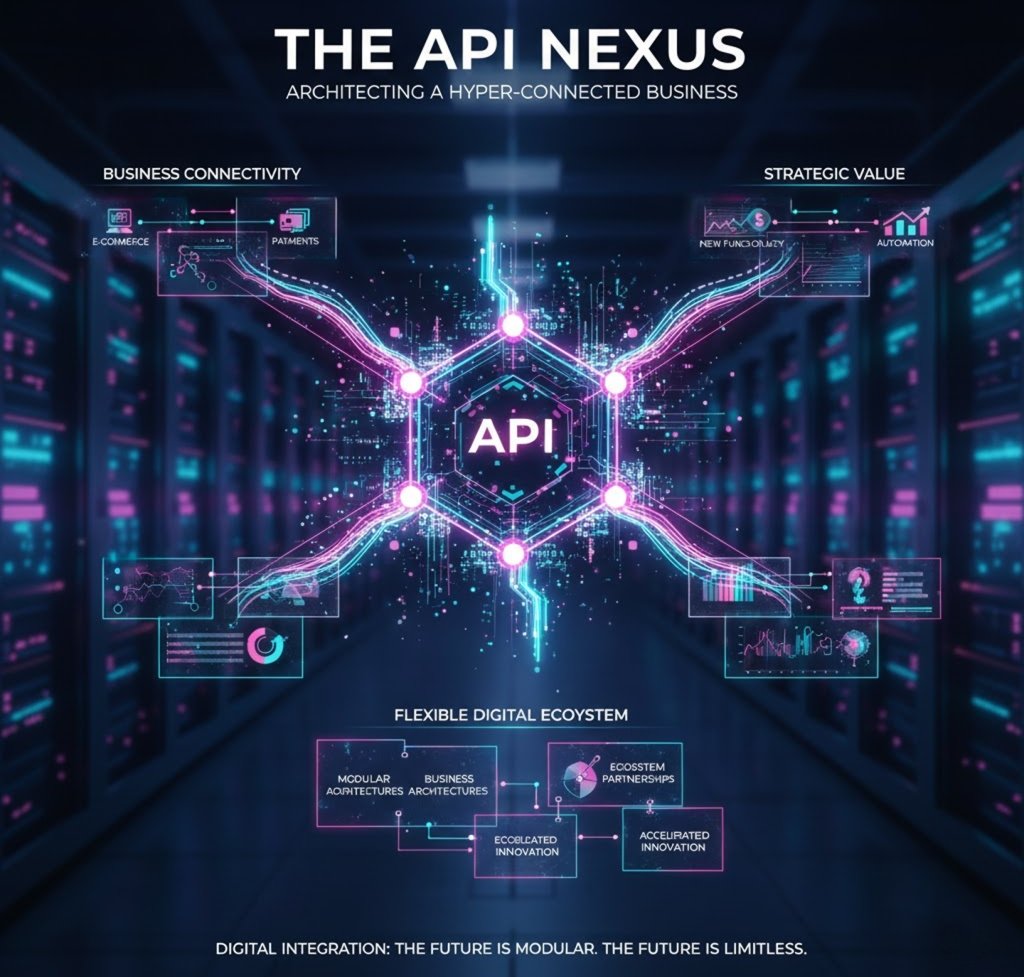The API Economy: Building a Connected Business with Integration Solutions
Mr. Hunain Panjwani
10/7/20252 min read


SEO Idea: A blog post that explains the strategic importance of Application Programming Interfaces (APIs). It will detail how businesses are using API integration to connect different software systems, create new business models, and foster a more integrated and flexible digital ecosystem.
SEO Keywords: API integration, API economy, business connectivity, software integration, digital ecosystem, B2B solutions.
In today's interconnected business world, no company operates in a silo. From e-commerce platforms to logistics providers, marketing tools to financial software, businesses rely on a complex web of disparate systems. The secret to making all of these systems work together seamlessly is the Application Programming Interface, or API. APIs are the invisible threads that connect the digital world, enabling different software applications to talk to each other. The rise of these connections has created what's now known as the API economy, a new paradigm of business where companies unlock value by building upon each other's services.
The Foundation of Business Connectivity 🔗
At its core, an API is a set of rules that allows one piece of software to communicate with another. Think of it as a waiter in a restaurant. You give the waiter your order (a request), and they take it to the kitchen (the server). The kitchen prepares your food (the data) and the waiter brings it back to you. You never have to know how the kitchen works; you just need to know how to communicate with the waiter.
This simple concept of software integration is the foundation of modern business connectivity. It allows a company to:
Connect Disparate Systems: An e-commerce site can use an API to connect with a payment gateway to process a transaction. A social media app can use an API to pull weather data from an external provider to provide a localized forecast.
Automate Workflows: APIs can be used to automate repetitive tasks. For example, a marketing team can use an API to automatically add a new lead from a website form to a CRM system, saving time and reducing manual errors.
Create New Functionality: Instead of building a new feature from scratch, a company can leverage an API from a third-party service. A ride-sharing app, for instance, doesn't need to build its own mapping software; it simply uses a mapping API from Google or Apple.
Creating a Flexible Digital Ecosystem 🌐
The true power of the API economy lies in its ability to foster a flexible and open digital ecosystem. This is especially critical for B2B solutions, which often need to integrate with a variety of other systems.
Modular Business Models: Companies can create new business models by offering their core services as a set of APIs. For example, a logistics company can provide its tracking and shipping services as an API, allowing e-commerce businesses to integrate those services directly into their own websites.
Ecosystem Partnerships: APIs enable companies to build strong partnerships. A software company can create an ecosystem of third-party developers who build new applications that integrate with their platform, increasing its value for all users.
Accelerated Innovation: By using APIs to "plug and play" with different services, companies can innovate faster. They can launch new products and services by integrating with existing solutions rather than rebuilding everything from scratch. This allows them to focus on their core competencies and stay agile in a competitive market.
In a world where speed and flexibility are paramount, understanding and leveraging the power of API integration is no longer a technical choice—it's a strategic imperative for any business looking to build a connected and future-proof operation.
